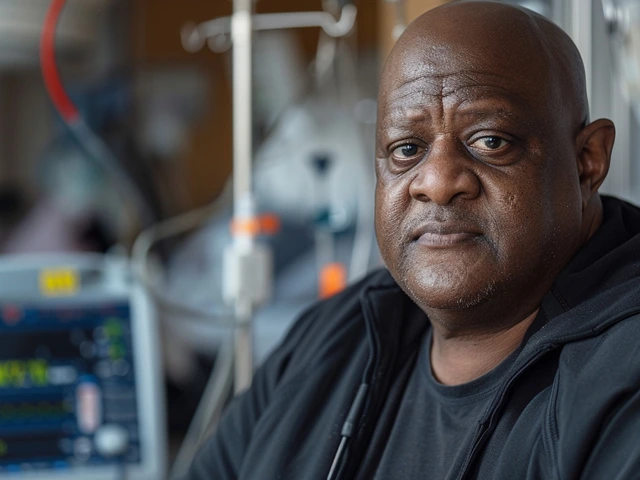
Revolutionary Pig Kidney Transplant Recipient Passes Away, Unrelated to Procedure
Rick Slayman, a 62-year-old man who became the recipient of a groundbreaking pig kidney transplant, has tragically passed away, Massachusetts General Hospital confirmed. However, they clarified the transplant was not the cause of his death. Slayman, who had been battling end-stage renal disease, underwent this pioneering procedure in March 2023, following the failure of a previous human kidney transplant he received in 2018.
The transplant involved a pig kidney that had been genetically modified to enhance compatibility with human bodies. This scientific advancement was facilitated by eGenesis, a company specializing in organ transplant solutions. They achieved this by deleting certain pig genes harmful to humans and inserting human genes to make the kidney more adaptable for the human immune system. This cutting-edge approach had been tested with success on monkeys, piquing the interest of the medical community globally.
Implications of Slayman's Operation
The procedure marked an important milestone in medical science, primarily due to the chronic shortage of available organs for transplant. With over 100,000 individuals in the U.S. alone waiting for an organ transplant, innovations like the one attempted in Slayman's case could significantly alleviate this burden. The operation drew attention not only from medical professionals but also from those awaiting transplants, fostering a blend of hope and curiosity about the possibilities of interspecies transplants.
Technical Insights into the Genetically Modified Pig Kidney
The kidney used in this transplant came from a genetically altered pig, a key innovation aimed at preventing rejection, a common issue with transplants from animal sources. By modifying the kidney to express certain human proteins, the team at eGenesis aimed to trick the human body into accepting the organ as its own. This bioengineering feat underscores a growing field of medical science where genetic manipulation holds the potential to solve complex challenges like organ rejection and compatibility.
The Life and Legacy of Rick Slayman
Rick Slayman's journey through his health challenges has been a beacon of hope and valor. Previously, after his human kidney transplant failed, he resumed dialysis, a testament to his resilience in the face of daunting medical adversities. His willingness to participate in this experimental transplant reflects immense courage and a desire to advance medical science, potentially paving the way for others suffering from similar conditions. The family expressed their sorrow over his loss but also gratitude for the inspirational role he played in the realm of medical research and organ donation.
Global Response and Future Prospects
The news of Slayman's procedure and subsequent passing has elicited a global response, with medical experts and ethicists weighing in on the implications for future organ transplants. This case opens several ethical and medical discussions about the use of genetically modified animal organs in human transplants. The medical community continues to monitor these developments closely, hopeful for solutions that could broaden the scope of transplantable organs and decrease wait times for patients desperately in need.
As we reflect on the contributions of Rick Slayman and the innovative efforts by Massachusetts General Hospital and eGenesis, it's clear that the journey to fully harnessing the potential of interspecies transplants is just beginning. The pioneering spirit of all involved promises a future where organ scarcity could potentially be addressed, benefiting thousands of patients in dire need of transplants. As research continues, the memories and legacy of patients like Slayman serve as inspiring milestones in the complex and evolving narrative of medical science.






